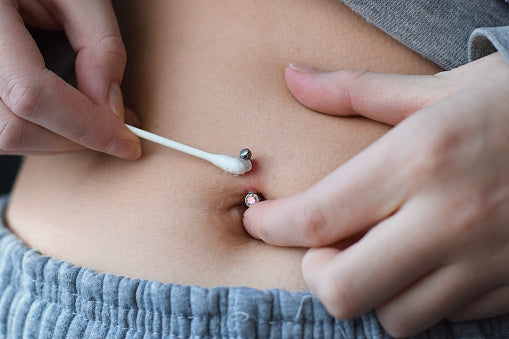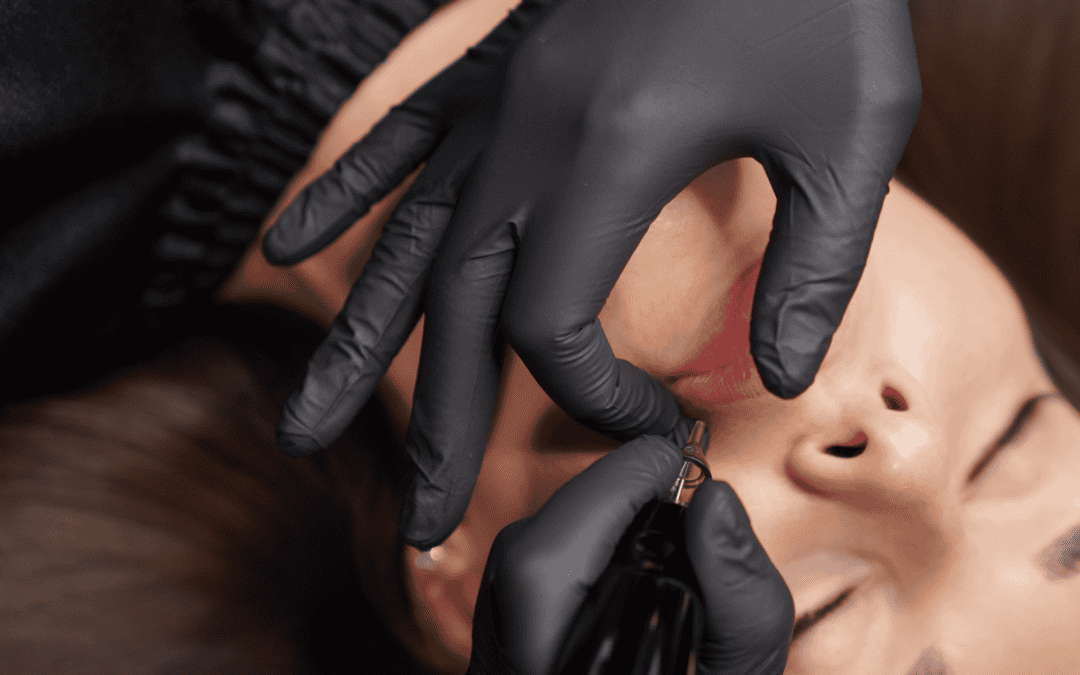Getting a new piercing is an exciting experience, but it also comes with the responsibility of proper aftercare. Taking the right steps to care for your piercing can differentiate between a smooth healing process and a painful infection. This guide will walk you through everything you need to know to keep your new piercing healthy and ensure it heals beautifully.
Why Aftercare Is Important
Piercings create an open wound in your skin, making it susceptible to infections if not cared for properly. Good aftercare helps prevent infections, promotes faster healing, and reduces the chances of complications like scarring or rejection.
Piercing Aftercare Essentials
Here are the key steps to ensure your new piercing stays healthy:

- Keep It Clean
- Use Saline Solution: Clean your piercing twice a day with a saline solution. You can buy a pre-made solution or make your own by mixing 1/4 teaspoon of non-iodized sea salt with 8 ounces of warm distilled water.
- Avoid Touching: Only touch your piercing with clean hands to avoid introducing bacteria.
- No Alcohol or Peroxide: Avoid using alcohol, hydrogen peroxide, or harsh soaps as they can irritate the piercing and slow down the healing process.
- Practice Good Hygiene
- Clean Your Hands: Always wash your hands thoroughly before touching or cleaning your piercing.
- Avoid Submersion: Keep your piercing out of pools, hot tubs, and other bodies of water where bacteria might be present, especially during the initial healing period.
- Shower Care: Let warm water run over the piercing during showers but avoid getting soap directly on it.
- Watch for Signs of Infection
- Redness and Swelling: Some redness and swelling are normal initially, but if these symptoms persist or worsen, it could indicate an infection.
- Pain and Warmth: Excessive pain or warmth around the piercing site might be a sign of infection.
- Discharge: A small amount of clear or slightly white discharge is normal, but yellow or green pus is a sign of infection.
- Avoid Irritants
- No Makeup or Lotions: Keep cosmetics, lotions, and other beauty products away from the piercing area to avoid irritation.
- Clothing Friction: Be mindful of clothing that may rub against your piercing and cause irritation. Opt for loose-fitting clothes that don’t put pressure on the area.
- Sleeping Position: Avoid sleeping on the side of your new piercing to prevent pressure and friction.
- Be Patient
- Healing Time: Piercings take time to heal, and the duration varies depending on the location. Ear lobe piercings may heal in 6-8 weeks, while cartilage or navel piercings can take several months to a year.
- No Early Jewelry Changes: Avoid changing your jewelry until your piercing is fully healed, as doing so can cause irritation or even close the piercing.

When to Seek Help
If you notice signs of a severe infection, such as fever, chills, or spreading redness, or if the piercing is not healing properly, seek medical attention promptly. Early intervention can prevent complications and ensure your piercing heals correctly.
Conclusion
Proper aftercare is the key to a healthy, beautiful piercing. Following these aftercare tips can minimize the risk of infections and other complications, allowing your piercing to heal as smoothly as possible. Remember, patience and consistency are essential in healing—your new piercing will thank you for it!




